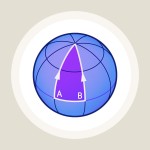Dictionary
big bang
The big bang models are the foundation of modern cosmology. Firmly grounded in Einstein’s theory of general relativity, they describe a universe that began in a very hot initial state and has expanded (and cooled down) ever since. They make precise predictions about nucleosynthesis in the early universe, the existence and properties of the cosmic background radiation, and the distribution of distant galaxies in the cosmos, which have been confirmed by astronomical observation.
The word “big bang” has two different meanings. In a strict sense, the big bang is a spacetime singularity, a state of infinite density – the initial state the big bang models predict for our universe. In a more general sense, the term is applied to the earliest cosmic eras, in which the universe was exceedingly hot and dense. Further information about these two meanings and why it is important to distinguish between them can be found in the spotlight text A tale of two big bangs.
The basic features of the big bang models are reviewed in the chapter Cosmology of Elementary Einstein.
Selected aspects of cosmology are described in the category Cosmology of our Spotlights on relativity.










